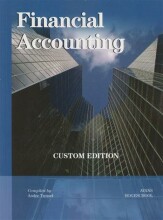Summary: Essentials Of Organizational Behavior
- This + 400k other summaries
- A unique study and practice tool
- Never study anything twice again
- Get the grades you hope for
- 100% sure, 100% understanding
Read the summary and the most important questions on Essentials of Organizational Behavior
-
Chapter 1 terms
This is a preview. There are 13 more flashcards available for chapter 02/12/2020
Show more cards here -
What is organizational behaviour?
A field of study that on investigates the impact individuals, groups and structure have on behaviour within organizations, for the purpose of applying such knowledge towards improving an organization’s effectiveness. -
What is social psychology?
An area of psychology that blends concepts from psychology and sociology to focus on the influence of people on one another. -
What is a strategy?
Practical translation of findings into goals and actions. -
What is a mission?
The essential purpose of theorganisation ,concerning particularly why it is inexistent .- What are our values?
- Who are we?
- What do we do?
- What are our values?
-
What is a vision?
How you view the future of your business.- What is unique and important?
- Where we are going as an organisation?
- What do we want to achieve?
- What is unique and important?
-
What is a purpose?
Provides the foundation for how a business runs. -
Chapter 2 terms
This is a preview. There are 12 more flashcards available for chapter 15/12/2020
Show more cards here -
What is power distance?
A national culture attribute that describes the extent to which a society accepts that power in institutions and organizations is distributed unequally. -
What are consequences of job satisfaction?
- Exit -> directs behavior towards leaving the organisation, including looking for a new position as well as resigning.
- Neglect -> response passively allows conditions to worsen and includes chronic absenteeism or lateness, reduced effort and increased error rate.
- Loyalty -> response means passively, but optimistically waiting for conditions to improve
- Voice -> Response which includes actively and constructively attempting to improve conditions, including suggesting improvements, discussing problems with superior and undertaking some forms of union actions
- Exit -> directs behavior towards leaving the organisation, including looking for a new position as well as resigning.
-
Chapter 3 terms
This is a preview. There are 14 more flashcards available for chapter 16/12/2020
Show more cards here -
What are characteristics for emotions?
- Caused by specific
- Very brief in durations (seconds or minutes)
- Specific and numerous in nature (many specific emotions such as anger, fear, sadness, happiness, surprise)
- Usually accompanied by distinct facial expressions
- action oriented in nature
- Caused by specific
-
What are the characteristics of moods?
- Cause is often general and unclear
- Last longer than emotions (hours or days0
- More general (two main dimensions 'positive affect' or 'negative affect' that are composed of multiple specific dimensions.
- Generally not indicated by distinct expressions
- cognitive in nature
- Cause is often general and unclear
- Higher grades + faster learning
- Never study anything twice
- 100% sure, 100% understanding































